Australian retail icons risk a Debenhams style ‘failure’
A catastrophic retail failure similar to the closure of Debenhams in the UK is a possibility in Australia, an expert has warned.
The shuttering of UK retail icon Debenhams has sent shockwaves across Britain with the insolvent department store leaving a huge gap on 124 high streets and shopping centres.
But the ramifications of Debenhams’ downfall are reverberating in Australia.
A retail analyst has said a “failure of the likes of Debenhams could happen in Australia”.
COVID-19 hasn’t helped retail anywhere. But the problems with department stores, like Debenhams, run deeper.
In Australia, chains have gone through a torrid few years as tastes change – some couldn’t even blame tough times on a pandemic.
Roger David, Ed Harry and Shoes of Prey are all no more. Even global powerhouses like H&M have exited some Australian locations.
RELATED: ‘Sad’ final hours of iconic British retailer Debenhams
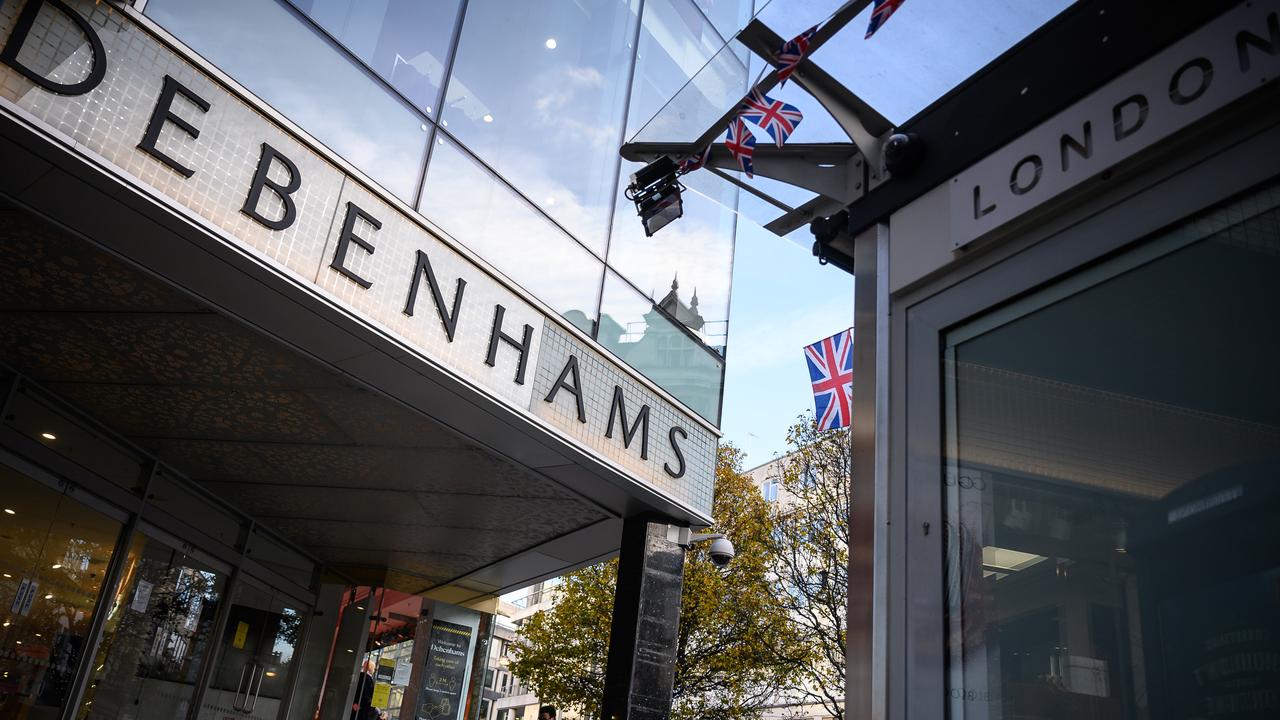
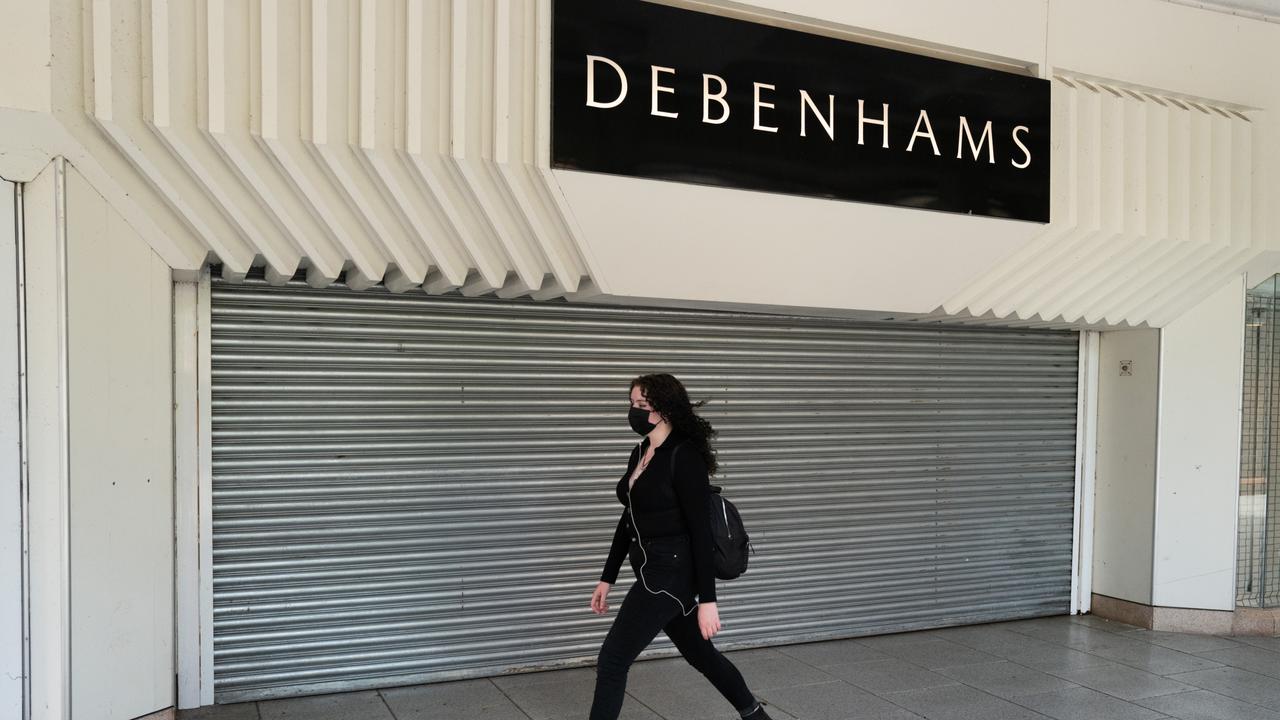
Earlier this week, news.com.au reported on the failure of Debenhams which closed its final stores on Saturday.
The mid-market department store began to stumble in the mid-2000s. Its large stores, with high rents, were full of brands that could be found elsewhere and in nicer surroundings – be that other stores or online.
At the same time discounters like Primark and fast fashion chains were tempting away shoppers.
From 2019, it went in and out of insolvency and then the pandemic hit. Debenhams finally announced every store would close this month.
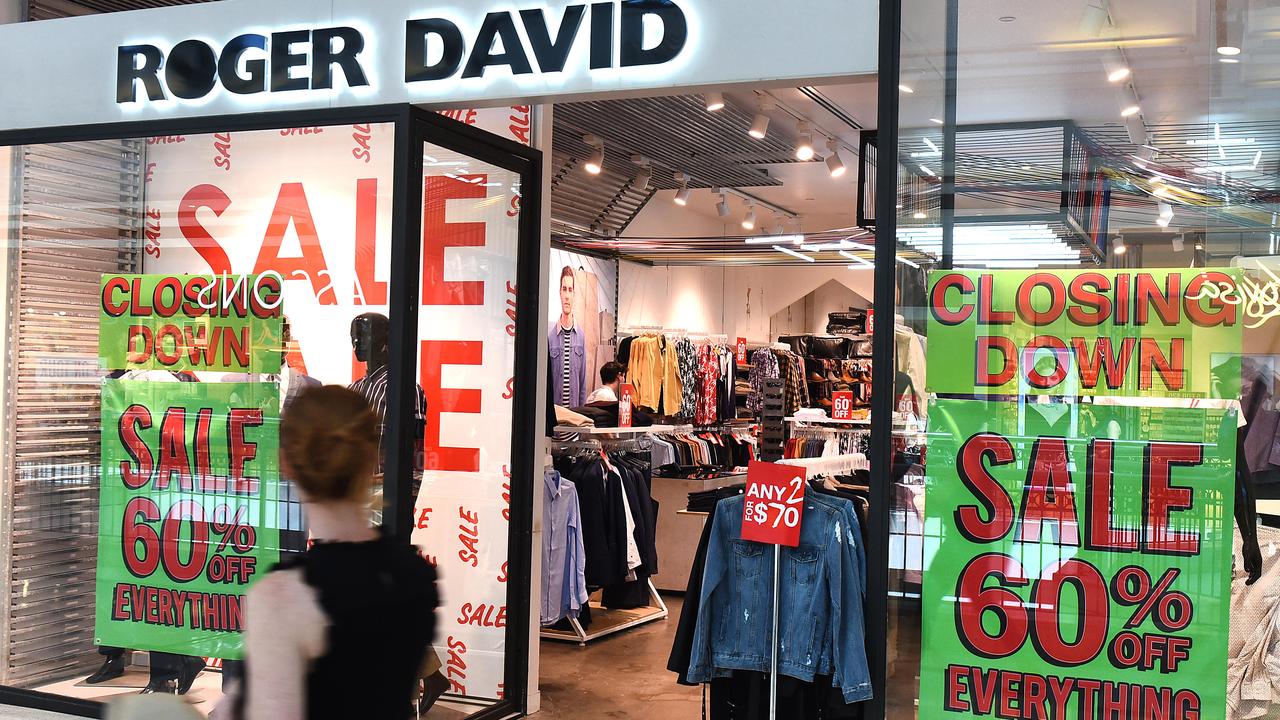
Australian retailers vulnerable
Australian-listed Myer told news.com.au “we don’t believe Debenhams’ circumstances are relevant to Myer”.
Both it and rival David Jones remain profitable and have upped their all-important online offerings. They both claim to be match fit for the future.
But QUT marketing expert Professor Gary Mortimer said Debenhams’ distress was a reflection of departments stores everywhere.
“The days of the big full line department stores have changed. A failure of the likes of Debenhams could happen in Australia and we’ve seen it happen before,” he said.
He said it would be interesting to see how the two big department stores fared when their full year results were announced in the coming months.
“COVID has muddied the figures a little, so it’s difficult to see how financially stable these businesses are,” he said.
“It would appear both businesses are moving away from a growth strategy to a cost reduction strategy in the form of closing stores or closing floors.”
There are far fewer Targets and Harris Scarfes these days too. Shopping centre staples like Flight Centre, Sportsgirl and Sussan soldier on but the pandemic has seen store numbers slashed. Some brands have been propped up by JobKeeper payments, a crutch that has now gone.
So which retailers will be worrying that Debenhams is a portent of what’s in store for them?
RELATED: Empty shelves at Debenhams’ sole Australian store
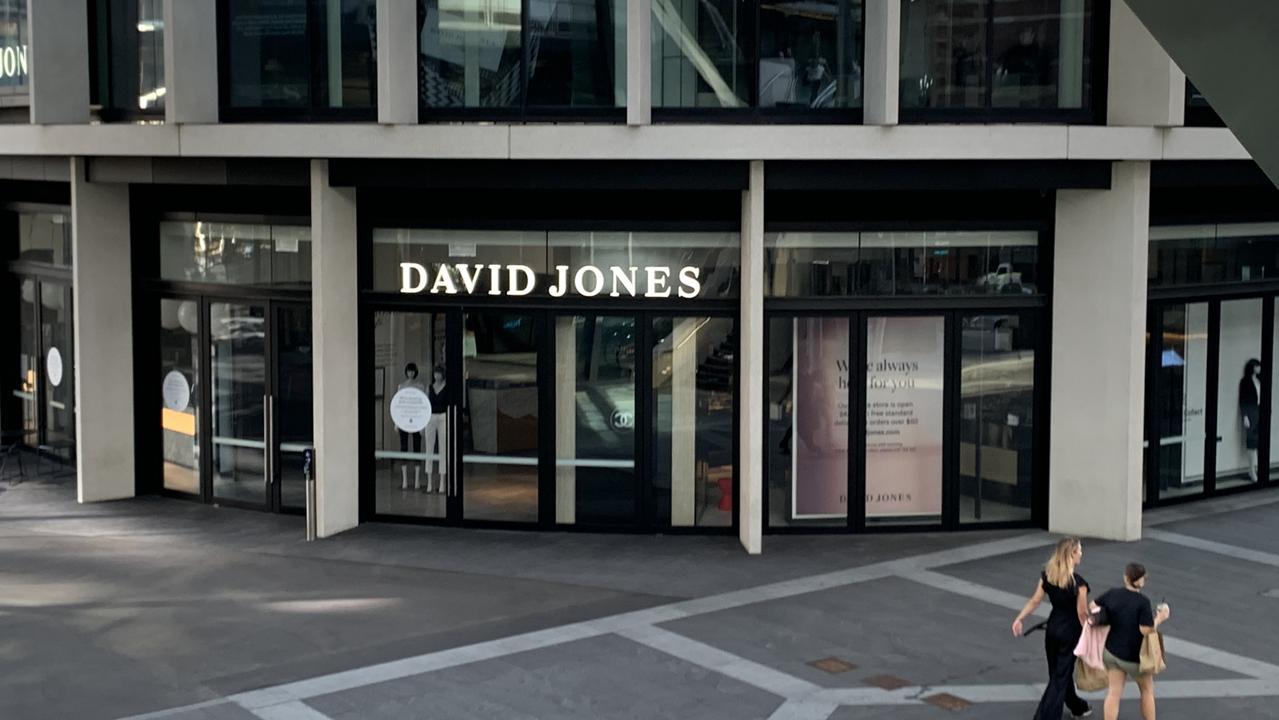
David Jones
No department store is having it easy, but DJs is still making money – just not a lot.
In February, David Jones’ parent South Africa’s Woolworths Holding (no relation to Woolies Australia), reported a 33 per cent rise in profit in the first half to $56 million for its Aussie offshoot. That was helped by online sales and some $39 million in JobKeeper payments.
To trim costs, DJs will close its two Melbourne stand-alone food halls, has moved out of one of its two Sydney CBD stores and will shortly consolidate its Melbourne CBD offering into a single space.
Yet, its small format store in the Barangaroo business district of Sydney has remained idle for a year, its shelves still half stocked with handbags and high heels even though no one can shop.
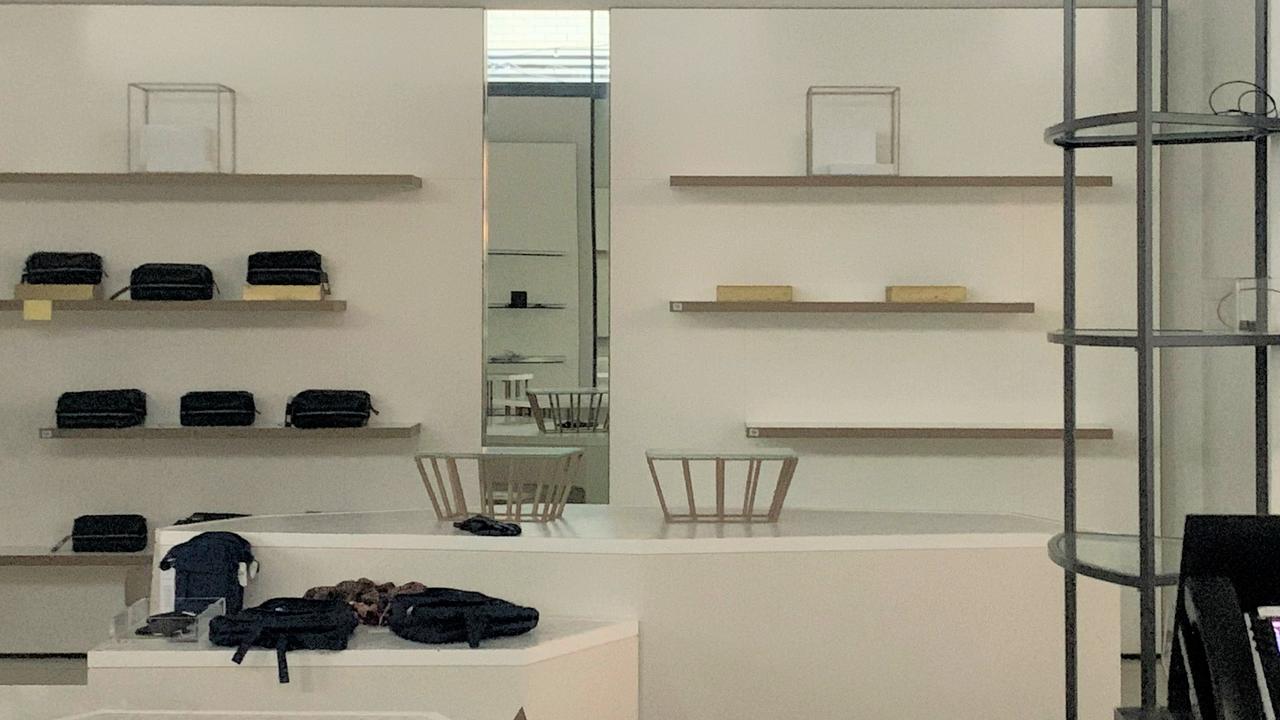
Prof Mortimer said the chain had promise.
“Success comes down to clearly differentiating yourself in the market. The refurbished Sydney store is aspirational, has exclusive lines and premium brands.
“DJs could focus on the CBD flagships, the Bondis and Parramattas – a smaller fleet of aspirational stores.”
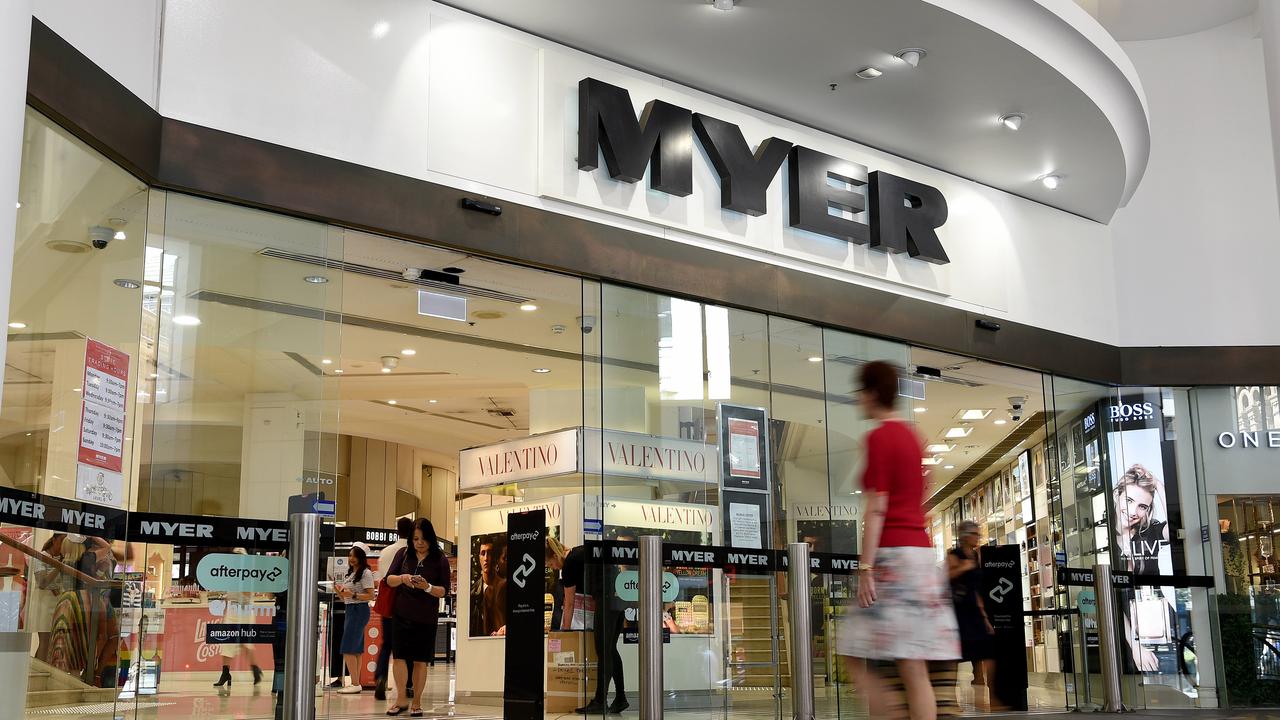
Myer
Myer saw sales slump during the lockdown as stores closed but still posted a $42.9 million half year profit. It received $51 million in JobKeeper but says it would still have been in the black without it.
Chief executive John King said the company was reducing floor space and lowering rents which allowed for fewer overheads. The company told news.com.au it had recently refurbished stores in Cairns and Canberra and opened a new beauty hall in suburban Perth.
However, Prof Mortimer said the company has challenges.
“Myer are still chasing volume and moving slightly into that Target space. But the middle market is really risky because you go up against the likes of Rivers, H&M, Zara and Uniqlo.”
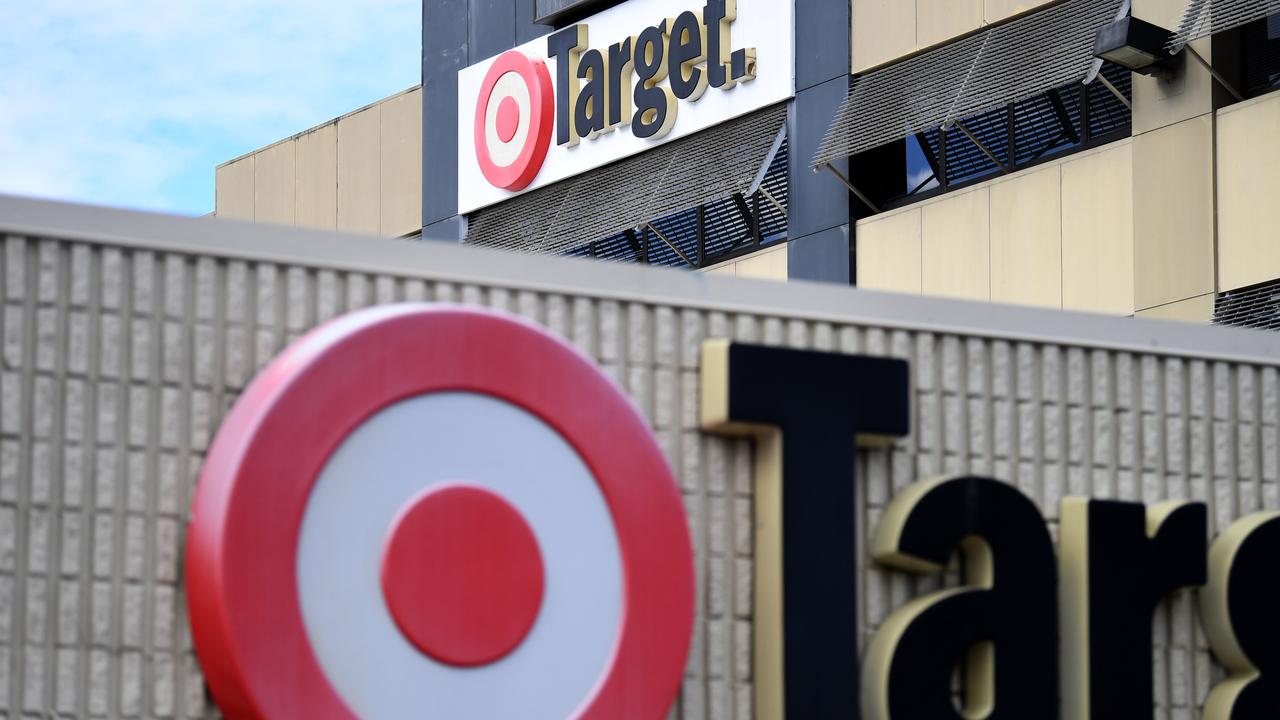
Target
You probably wouldn’t get good odds if you bet on Target still being in Australia in five years. A little over a year ago it had 284 stores, that’s down to just over 150 with around 70 Targets now mini-Kmarts and the rest closed.
Managing director Ian Bailey has flagged Target, squeezed between Kmart and Myer could become a bigger business online compared to its physical presence.
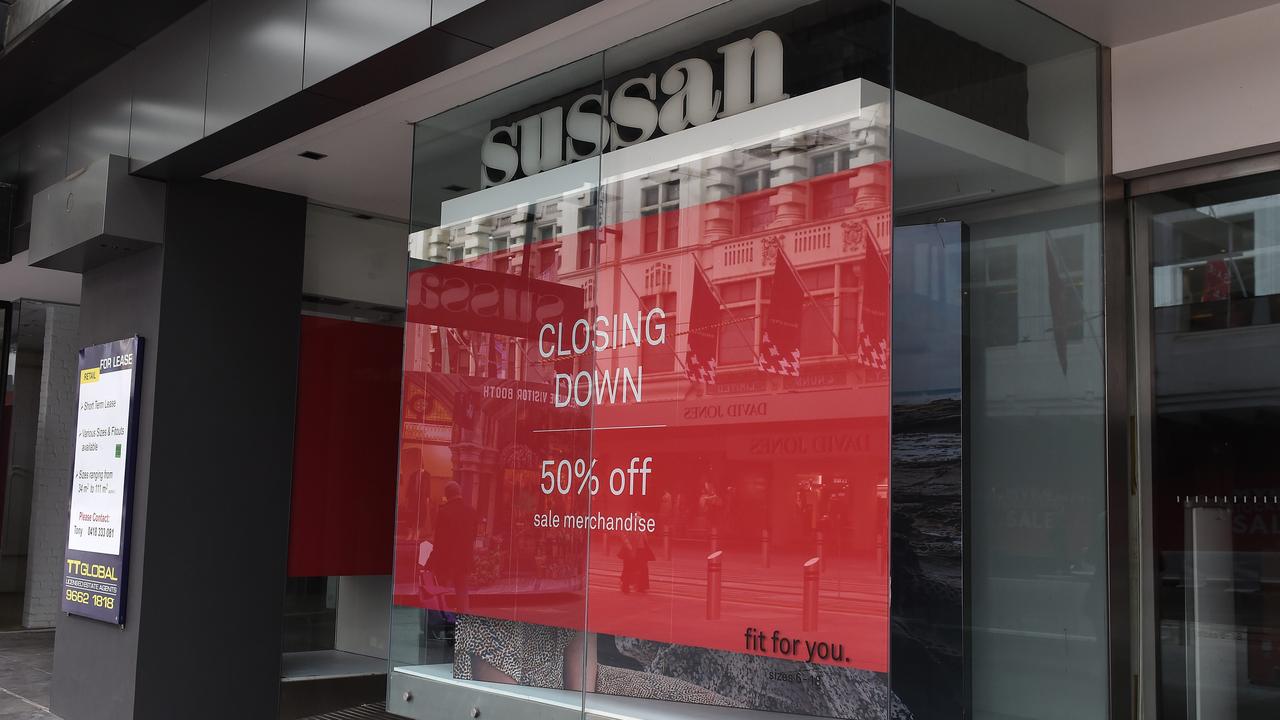
Sussan, Sportsgirl
There’s barely a shopping centre in Australia without a Sussan Group store which also includes Sportsgirl and Suzanne Grae. But store numbers have been declining.
Earlier this month, Sportsgirl rejected claims it has breached the lease of its flagship Melbourne Central store by failing to pay $2.3 million in rent while it was closed.
Sussan Group blamed the economic fallout from the pandemic for the store closure.
But Prof Mortimer said Suzanne Grae and similar brands had rusted on shoppers.
“They may not be adventurous shoppers but they like the fit and the quality. The challenge for them is who will be their new customers for the next 10 to 20 years.”
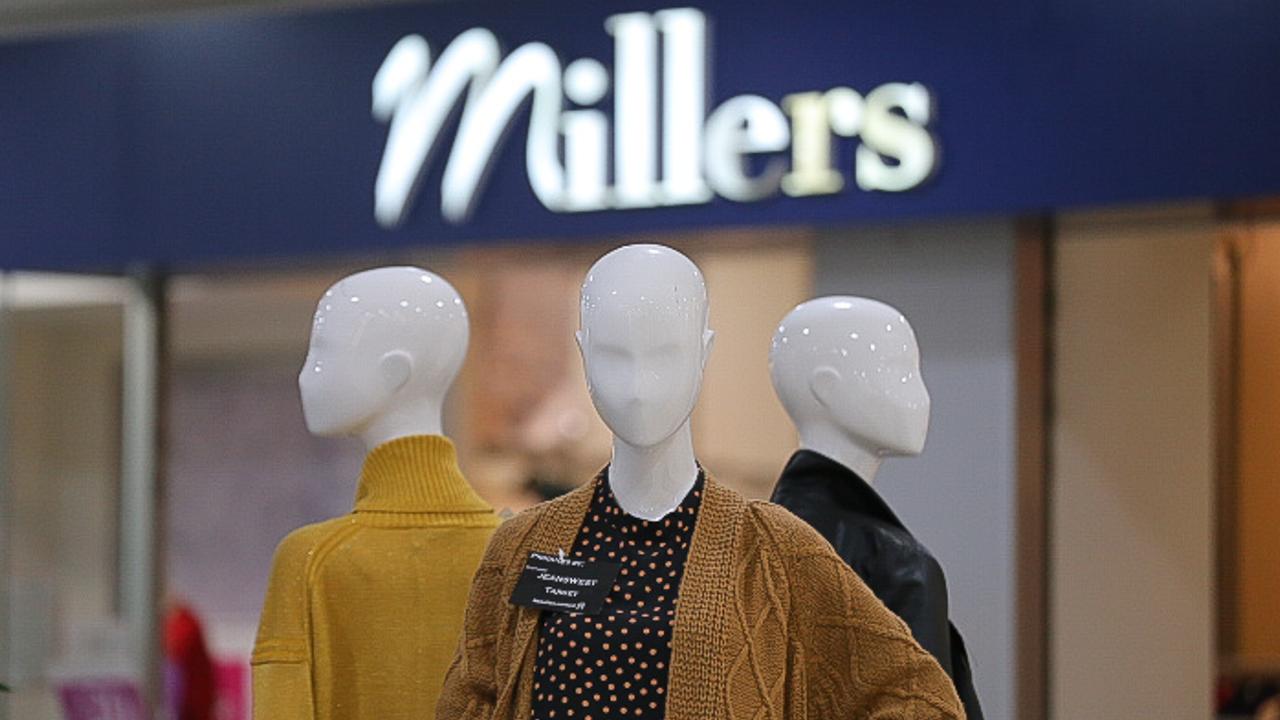
Katies, Rivers Noni B
Sussan Group’s big competitor is Mosaic Brands – it’s also closing stores. In October, Mosaic said it would close 250 Katies, Rivers, Rockmans, Millers and Noni B stores in locations where it didn’t succeed it getting a steep enough rent cut.
Some customers have forsaken Australian brands for the global giants of H&M and Zara. But even they are having to adapt. Last year H&M closed two underperforming stores in regional Queensland.
Harris Scarfe has also had to slash stores to survive. The homewares chain, which has been through multiple owners in recent years, closed 21 stores in 2020 including its Adelaide CBD flagship. It has now disappeared completely from Sydney.
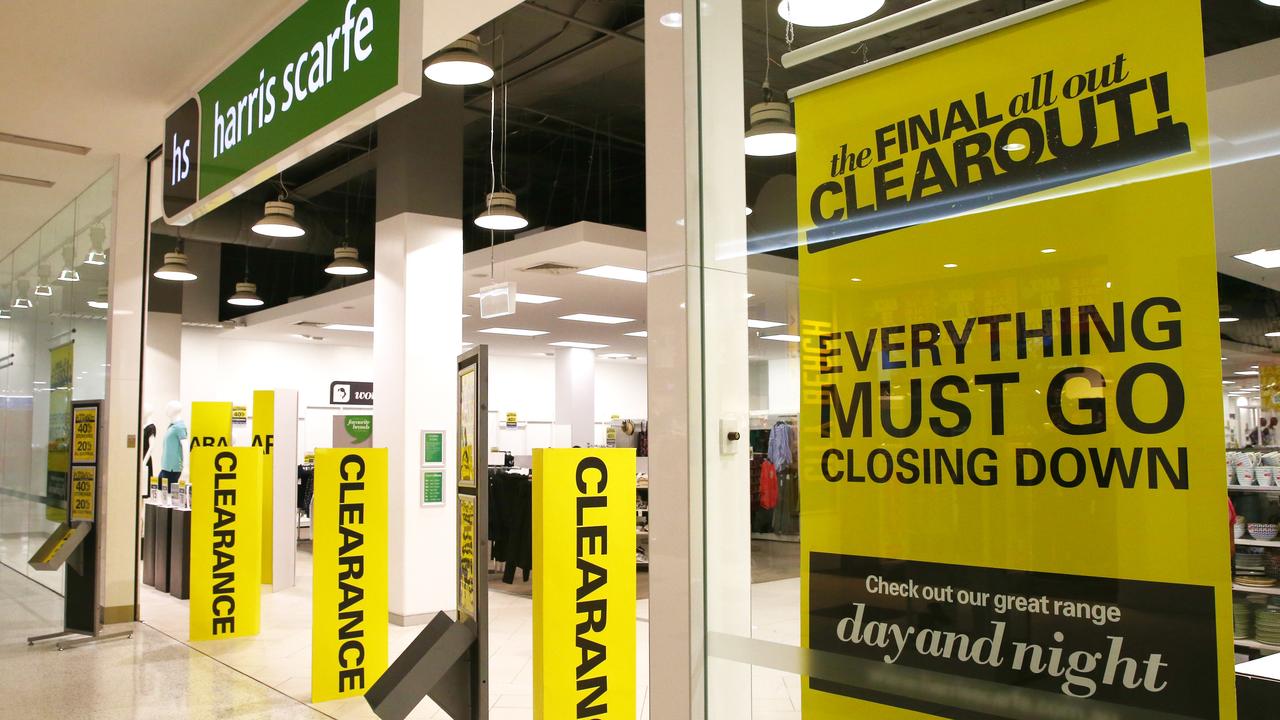
But other Australian retailers are flourishing
Premier Investments, the company behind Just Jeans, Smiggle and Peter Alexander, continues to prosper.
It made $188 million of profit in the first half of 2021, helped by almost $70 million of JobKeeper funds. After mounting pressure it has now paid back $16 million of that to the public purse.
JB Hi-Fi and Best and Less are also doing well.
But, Prof Mortimer said, complacency was a sure fire way to lose customers.
“We tend to think if a brand has been around for 150 years, it will always be around. I bet Debenhams thought that too.”
Myer and David Jones were contacted for comment.




